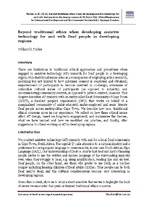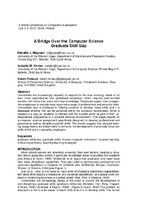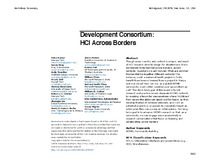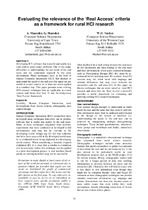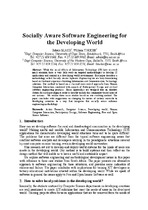Browsing Research Articles (Computer Science) by Subject "Human-Computer Interaction (HCI)"
Now showing items 1-5 of 5
-
Beyond traditional ethics when developing assistive technology for and with deaf people in developing regions
(Springer, 2015)There are limitations to traditional ethical approaches and procedures when engaged in assistive technology (AT) research for Deaf people in a developing region. Non-traditional issues arise as a consequence of employing ... -
A bridge over the computer science graduate skill gap
(2013)Universities are increasingly required to respond to the ever evolving needs of an ever more sophisticated and globalised workplace, which requires well-rounded workers with more than mere technical knowledge. Employers ... -
Development consortium: HCI across borders
(Association for Computing Machinery, 2016)Though every country and context is unique, and much of HCI research aims to design for situatedness, there are lessons to be learned across borders, across contexts. Questions we ask include: What are common themes ... -
Evaluating the relevance of the “Real Access” criteria as a framework for rural HCI research
(ACM, 2006)Developing ICT software that is useful and usable in a rural context poses many problems. One of the major difficulties is understanding the real needs of the target users and the constraints imposed by the rural environment. ... -
Socially aware software engineering for the developing world
(IIMC International Information Management Corporation, 2006)While the social effects of Information Technology (IT) have received much attention there is very little work on targeted methodologies to develop IT applications and content in a developing world environment. This paper ...

